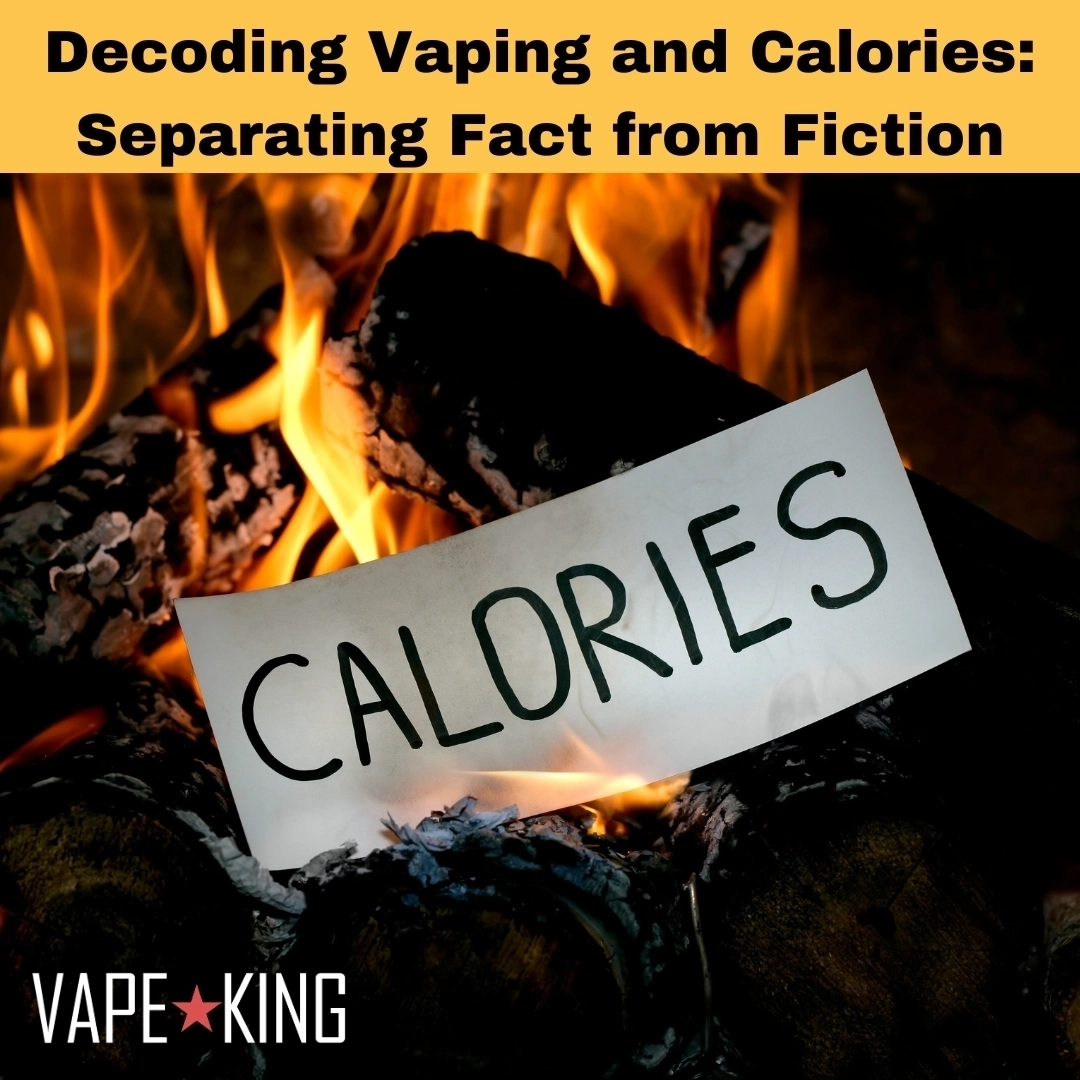Free Shipping on orders R1000 or more!
Decoding Vaping and Calories: Separating Fact from Fiction

If you're considering the switch from smoking to vaping, chances are you're conscious about what goes into your body. Vaping offers a smoke-free alternative, but a common concern for health-conscious individuals is whether vaping has any impact on weight. In this exploration, we'll dive into the world of calories in vapes, deciphering the truth behind this often-misunderstood aspect of vaping.
Do Vapes Have Calories?
Before delving into the caloric content of vapes, it's crucial to understand that the belief that vaping aids weight loss lacks scientific evidence. Conversely, there's no reason to believe that vaping leads to weight gain. Although vapes do contain calories, these are inconsequential unless they enter the digestive system.
The main components of vape juice include:
Carrier Blend (Vegetable Glycerin and Propylene Glycol):
- VG contains about 4.32 calories per gram.
- PG contains about 4 calories per gram.
A typical vape juice is composed of over 90% of this carrier blend.
Flavors:
- Food-grade flavors, concentrated and mixed with carrier liquids (VG or PG).
- Alcohol-based flavors may be used, containing 7 calories per gram, but in minuscule amounts.
Nicotine:
- Nicotine, which makes up a small percentage of the overall mixture.
Calculating Calories in Vape:
If a 2 ml vape tank is filled with vape juice consisting solely of vegetable glycerin, it would amount to approximately 10.89 calories. Realistically, this is the upper limit, as most vapes contain a blend of ingredients.
Calories in Vape Juice Flavors and Nicotine:
- Flavorings, primarily carried by VG or PG, have negligible effects on caloric content.
- Nicotine does not contribute measurable calories.
Total Calories in a Vape:
Based on the composition of vape juice, it can be concluded that a vape or a bottle of e-liquid contains roughly 5 calories per ml. For instance, inhaling 2 ml of vape juice equates to approximately 10 calories, an inconsequential figure in the context of daily caloric intake.
Absorption of Calories from Vaping:
Crucially, the human body only absorbs calories through the digestive system, not the lungs. Even if a small amount of vapor condenses in the mouth and is swallowed, the impact on caloric intake would be practically immeasurable.
Can Vaping Make You Gain or Lose Weight?
- Weight Gain: The caloric content of vape juice is so minimal that it cannot contribute to weight gain. Your body does not absorb calories through inhalation.
- Weight Loss: While vaping may indirectly aid weight loss by satisfying sweet cravings, it is not a standalone weight-loss solution. Lifestyle changes, such as monitoring food intake or adopting a more active lifestyle, are essential for effective weight loss.
Final Thoughts: Vaping and Weight Management
In essence, the caloric content of vapes is insignificant in the broader context of weight management. Vaping is not a magic solution for weight loss, and making the switch from smoking should be driven by health considerations rather than weight-related aspirations. If vaping helps curb sweet cravings and reduces intake of empty calories, weight loss may occur indirectly. However, for substantial and sustainable weight management, broader lifestyle changes are key.
In conclusion, the caloric content of vape juice is minimal, and its impact on weight is practically negligible. When navigating the realm of vaping and health, it's crucial to focus on overall well-being rather than expecting vaping to be a silver bullet for weight-related goals.
No posts found
Write a review

